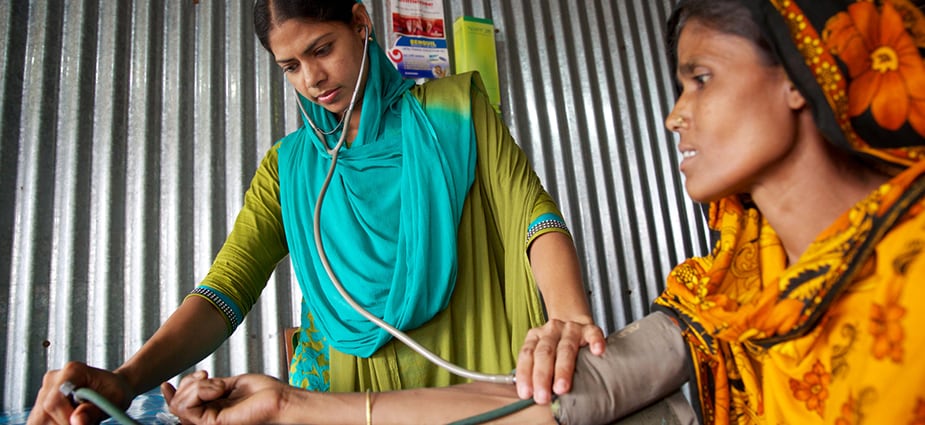Economic Impact of NCDs

Noncommunicable diseases (NCDs) can have devastating impacts on personal financial security and national economic growth. In low- and middle-income countries, NCDs often affect people during their most productive years. When individuals with NCDs face tremendous healthcare costs and a restricted ability to work, households struggle with increased financial risk. These high healthcare expenses and reduced productivity strain developing economies and impede social and economic development.
Making the Case for Action
Investing in NCD prevention and control strategies could prevent millions of premature deaths and billions in economic loss.1 Research that evaluates the economic impact of NCDs and NCD interventions enables countries to adopt effective programs and policies. CDC collaborates with partners to:
- Support economic evaluation of NCD programs, such as the HEARTS approach for CVD prevention in primary care
- increase scientific research on the economics of NCDs
- create tools to evaluate NCD costs
- train global partners on economic analysis and evaluation
- use evidence to inform NCD strategy development
CDC also supports and co-chairs the International NCD Economics Research Network, a global coalition of academic, governmental, and nongovernmental researchers that produces and shares peer-reviewed research on the impact of NCD prevention and control programs and policies.
- Cost-effectiveness analysis provides evidence to guide the initiation and development of hypertension programs
- Targeted health funding for NCDs to low- and middle-income countries is effective in improving NCD burden, particularly for cardiovascular and chronic respiratory diseases
- Low availability and high cost are major barriers to the use of antihypertensive medications in low‐ and lower‐middle‐income countries
- Noncommunicable disease strategies can strengthen pandemic preparedness.